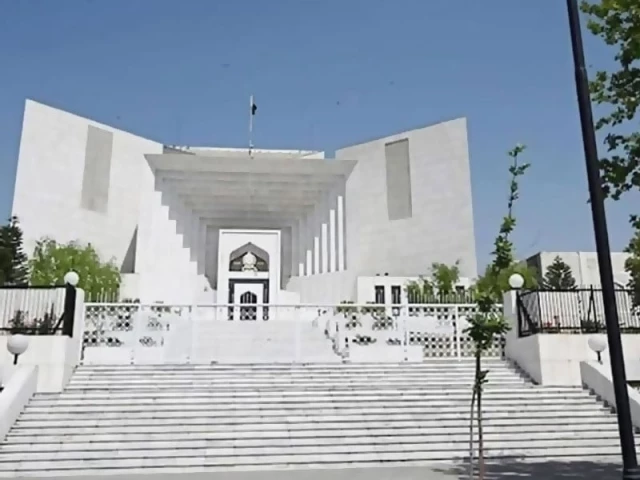The Supreme Court has issued a policy concerning the use of official vehicles by judges. The policy, called the transport rights policy for the judges of the Supreme Court 2025, will apply to the outgoing judges and the retirement of the Supreme Court.
According to the 1997 ordinance of judges of the Supreme Court (leave, pension, privileges), read with the letter from the Division of the Ministry of Law, justice and human rights dated 07.06.2007, at altitude, a judge of the Supreme Court has the right to use two official cars up to 1800 cm.
“A vehicle must be used as” main car “(for official purposes), while the other as” secondary / family car “. The vehicles thus provided must be maintained at the expense of government through the budget allocation of the court with PO in the two cars up to 600 liters per month (like the prescribed monthly ceiling or the real judge), as short of the certificate, 20.01.2010.
Each judge is also entitled to the provision of two drivers: one provided by the regular court of force and the other appointed on a contingent basis.
In exceptional circumstances or if necessary, if requisitioned, a third car can be provided – subjective to availability – after approval of the registrar for a maximum period of two weeks. If such a period requires an additional extension, it should only be authorized with the approval of the chief judge of Pakistan (CJP), on the payment of the prescribed accusations. In any case, a third car should not be kept beyond eight weeks a year.
Provision of security vehicles (escort)
The policy stipulates that the CJP is entitled to security (escort vehicles) according to the Blue Book under the supervision of the Director of Security (CSO).
“Each honorable judge is entitled to the supply of a well -trained shooter with a security vehicle (escort) on a 1/4 ratio, provided by Islamabad police at the main seat and by provincial police in the event that any honorable judge is in the provincial jurisdiction. When a honorary judge requires additional vigor, the honorary threat, the Pakistan chief.
Post-retirement law
The policy stipulates that each regular court judge, retired, can keep the main car for a maximum period of one month, after which the vehicle must be recovered and returned to the court of the court.
“Each honorable regular judge of the Tribunal, retired, has the right to buy a primary or secondary car with a depreciated value in accordance with the existing government policy, provided that the honorable judge did not benefit from the establishment previously.”
He also stipulates that each retirement judge of the court, on request during his suspension in Islamabad or provincial capitals, according to the case, will be entitled to the supply of an official vehicle, subject to availability, for accusations prescribed as determined by the full court, as well as additional ease of Pick-And-Trop to / of the airport.
Elimination of vehicles
“Depending on the rules relevant to the use of staff cars, 1980, after having reached the prescribed age / mileage limit, official vehicles will be eliminated by law / rules in force. The elimination procedure is transparent and in accordance with the regulatory directives of public procurement (PPRA) or other laws applicable for time.”
It is also specified that all the costs incurred in relation to purchases, maintenance, refueling and exploitation of official vehicles, as well as the employment of drivers, will be filled with the sanctioned budget of the court under the respective chiefs.
It is also specified that in the event of ambiguity or uncertainty concerning the interpretation of this policy, the case will be placed before the CJP for the appropriate orders.
Funeral arrangements policies
SC has published new guidelines to manage the provisions on the disappearance of former judges, appoint focals to help funeral, transport and placement of floral crowns.
According to the office order, the deputy registrar (various) – or in its absence, the deputy registrar (various), principal officer of the protocol or designated personnel, will serve as a focal person in Islamabad.
The officers responsible for the registers of branches in Lahore, Karachi, Peshawar and Quetta will exercise similar tasks at the provincial level.
The focal person will represent the court, will help transport the deceased to the funeral site and place a floral crown on behalf of the chief judge of Pakistan and the judges in office.




